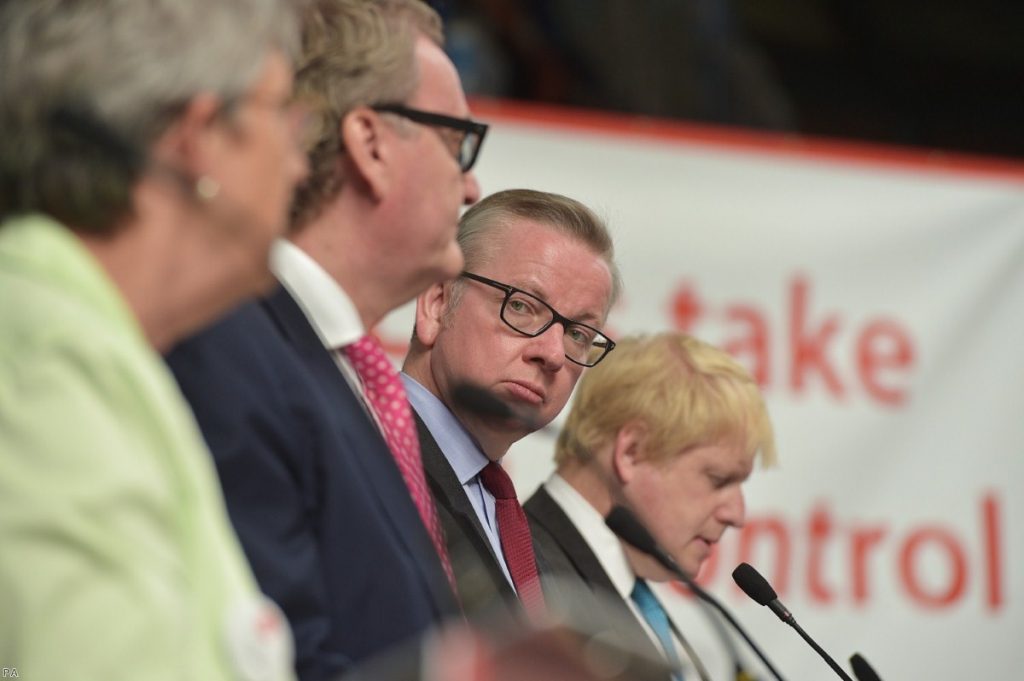In the run up to the last general election a series of three polls suggested that Labour were on course to win the general election.
Reacting to the latest findings, the Guardian newspaper published a front page headlined: "The day the polls turned". The implication was that public opinion had decisively turned in favour of Ed Miliband and Labour.
As everybody now knows, it didn't quite turn out that way. Within 24 hours, several more polls came out showing a very different picture. A month later the Conservatives won the general election by a six point margin.
A similar series of events took place in the Scottish independence referendum, where a poll putting the Yes campaign ahead led to a series of frenzied headlines suggesting the tide had turned towards independence. In the end, the No campaign won by over ten points.


Fast forward to the European referendum and the British press appear to have learned almost no lessons from those two elections. Over the past few weeks there have been multiple stories reporting either that the Remain campaign is pulling ahead, or that "Britain is heading for Brexit" based on at most a string of two or three polls. Yesterday saw another series of such articles, only for more polls to come out overnight suggesting Remain were still out in front.
As polling expert John Curtice wrote earlier this week, despite multiple reports of surges for both campaigns, the wider polling trend has been relatively stable over recent weeks. Yes, Leave do appear to have picked up some support, but the latest poll of polls still puts the Remain campaign two points ahead.
There are also still big differences in how the phone and online polls see the race, with the latter being much more favourable to Leave. Checking the performance of online polls against recent election results suggest this bias towards Leave could be misplaced. In the run up to the general election, online polls showed much higher levels of support for Ukip, with one poll even suggesting the party were on course to win over a hundred seats. In the end they won just one.
Methodological changes undertaken since the election do not seem to have eliminated this problem. Results from the recent local and regional elections show that online polls have continued to overstate Ukip support compared to actual election results. Could they also be overstating eurosceptic voters in the referendum as well?
The wider historical tendency also suggests that confident predictions of Brexit may be misplaced. In almost all previous UK referendums the status quo option has picked up support in the final weeks of the campaign. With Remain still ahead with just weeks to go, a narrow defeat for Leave still seems the most likely outcome.
One other lesson that appears not to have been learnt from the general election polling debacle is the fact that the underlying polling factors ended up being much better predictors of the final result than the headline poll findings. While the headlines suggested the race was neck and neck, questions about the qualities of the two leading parties showed significant leads for the Conservatives on most of the leading issues. Crucially, the question of which party was most trusted on the economy found consistent and long-term leads for Cameron and the Tories.
YouGov: Would Brexit be:
Bad for jobs? 35%
Good for jobs? 21%Bad for pensions? 20%
Or good? 10%Will you be
Better off? 10%
Worse? 20%— Adam Bienkov (@AdamBienkov) June 7, 2016
Fast forward to the referendum campaign and the polls are also showing significant differences in how the public see the arguments for Leaving and Remaining. All of the polls so far suggest the Leave campaign have a big lead on the issue of reducing immigration, whereas the Remain campaign have a big lead on protecting the economy. However, when asked which issue is most likely to swing their vote, significantly more people say that the economy will be the deciding factor rather than immigration. And on that issue, more people say Leaving the EU would be bad for jobs, bad for pensions and leave them worse off.
Of course that doesn't mean that Remain will definitely win, but it does mean the press should be much more cautious before next calling a 'surge' for either the Leave or Remain campaigns.
Adam Bienkov is the deputy editor of Politics.co.uk
The opinions in politics.co.uk's Comment and Analysis section are those of the author and are no reflection of the views of the website or its owners

